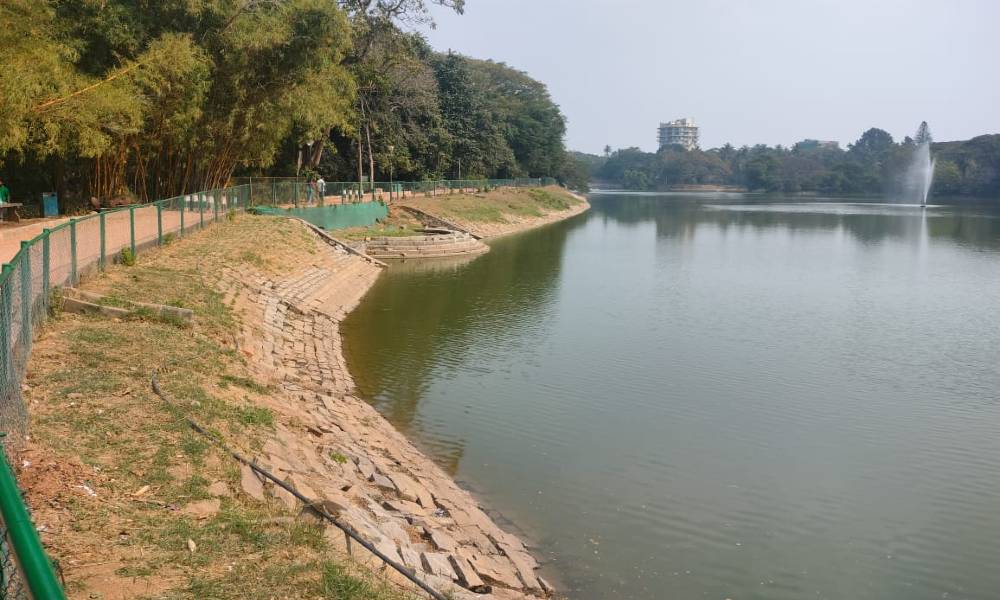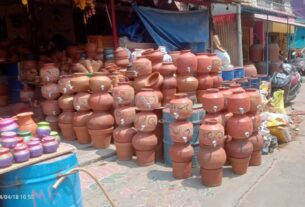Despite reports about the impending pollution of Lalbagh Lake, authorities maintain that the stormwater is clean.
Migratory bird population around the Lalbagh lake has declined in the past three decades despite the authorities’ stated efforts to tackle lake pollution.
The lake is well known as a popular spot for bird watching as exotic birds like, egrets, herons, cormorants and pelicans are often spotted in the lake.
According to the State Of India’s Birds report published in 2023, there was a 60 percent long term decline of Indian bird species.
Ornithologists and resident bird watchers agree that migratory birds have been disappearing from Bangalore.
“I have studied Lalbagh lake’s bird life for the past 30 years and there has been a steady decline of bird visits to the lake,” said Dr M.B Krishna, an ornithologist and ecologist based in Bangalore.
However, Lalbagh authorities insist that the lake is clean. G Kusuma , the Deputy Director of Lalbagh said that the drain only gets filled up during the rains. “We collaborate with the Bangalore Water Supply and Sewage Board (BWSSB) to check the filters and make sure the drains are sewage free,” she said.
Almost two years have passed since Lalbagh Botanical Garden’s authorities allowed the Bruhat Bengaluru Mahanagara Palike (BBMP) to connect a storm water drain into its popular resident water body, known locally as Lalbagh Lake.
News reports in February 2022 had stated that the BBMP had linked a stormwater drain that emptied into Lalbagh Lake, and there was no facility provided to treat the stormwater flowing into the lake, with the authorities stating that natural aerators would treat the water.
According to reports from the Comptroller and Auditor General, 53 per cent of Bengaluru’s stormwater consists of sewage due to illegal connections of sewage drain networks into stormwater drain networks. This contaminates stormwater, which would then flow into Lalbagh Lake, contaminating it in turn.

“Causes include steeping shorelines, in which water bodies are built with walled-up shores,” Krishna said.
This impedes the free flow of water into the lake, making it unsuitable for migratory birds.
In February 2023, Karnataka’s government had announced the Sahasra Sarovara scheme where Rs. 75 crores would be set aside from the state budget in order to rejuvenate around a thousand lakes in Karnataka.
But Dr. Krishna is critical of the approach that has been taken.
“The priorities need to be more biodiversity friendly, when approaching and undertaking lake rejuvenation,” he said.




